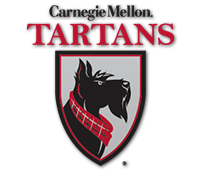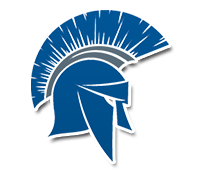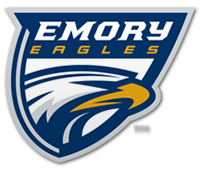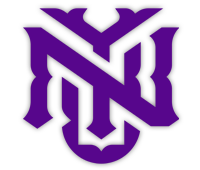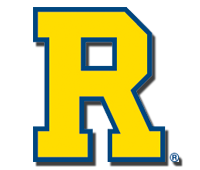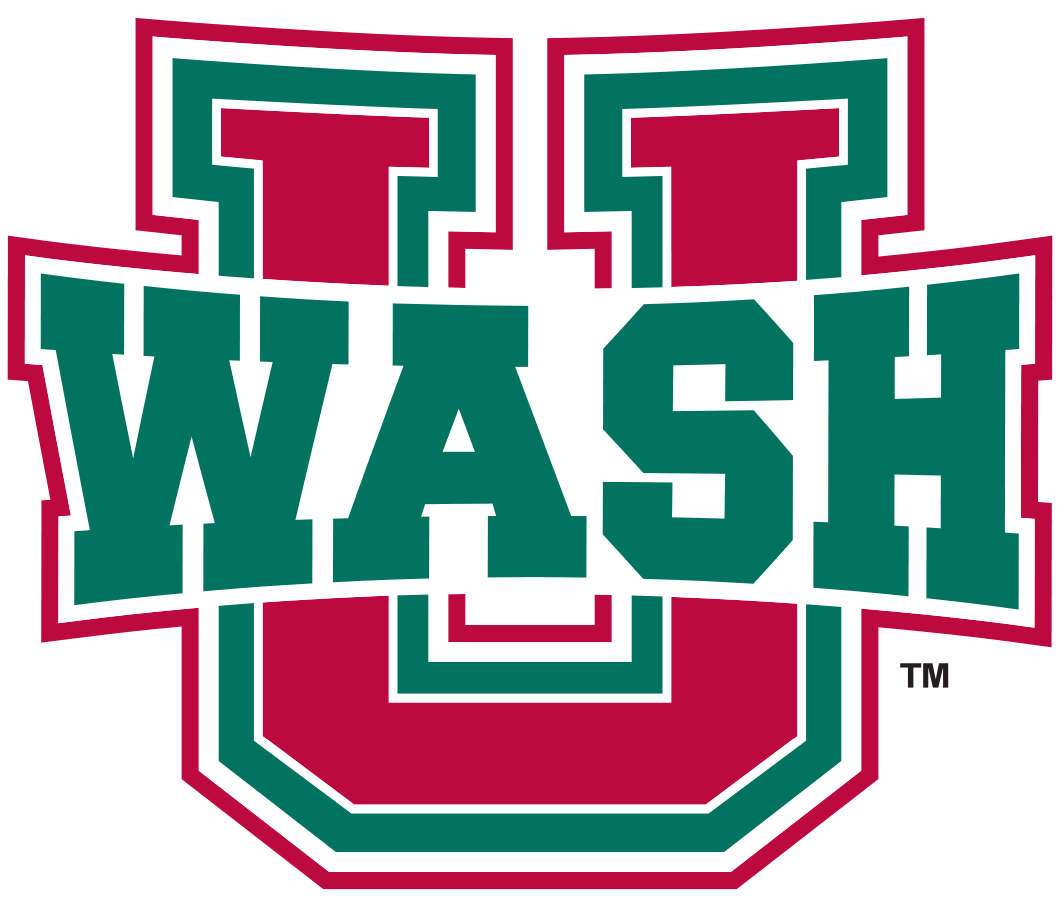Masaru Fujimaki, Senior Co-Captain
Balancing academics and athletics: “Being a student-athlete makes me more organized. I always plan so I don’t panic for studying or traveling. I do the work beforehand when we are going to be away. By junior year, I managed to do all the things together and enjoy my social life as well. Over time, I have learned better time management skills.”
One of the challenges of being a captain on a team made up of so many international players: “When people come from so many different places, they learn different techniques from their coaches. In the off-season practices, I can’t really say they are doing something wrong because they have learned that way.”
His legacy: “I have really tried to organize the (off-season) practices and motivate the younger guys to work hard from the bottom up. I feel like I have done something for the team going forward by showing how hard work pays off.”
Fujimaki will graduate in May and then return to his birth country when he begins working as a consultant in Tokyo, Japan.
Tanmay Thakkar, Junior Co-Captain
His first time in the U.S. was on a vacation in 2008. His sister, who earned a master’s degree in business administration at Brandeis University in 2016 is currently living and working in Austin, Texas.
Studying at Rochester: “I was interested in computer science and India doesn’t offer a course just based on computer science. Then data science started at Rochester and that was even more interesting. I struggled to balance everything the first year because the way of studying is much different in the U.S. than in India. By sophomore year, I learned how to balance things with a daily agenda. I try to pre-plan as much as possible and can plan around the tennis schedule because it is set.”
The team concept: “Coming from different countries, we are used to playing in different conditions and we can share those experiences. The varsity culture was not really known to me when I got here. A lot of Americans played high school tennis, which was new to me. At the same time, I bring things they have not experienced.”
The win over NYU in last year’s UAA championship: “We had so many chances in our earlier meeting with them last year, but we couldn’t pull it through. They were our biggest rivals last year. That win for the returners was motivating and happened at a critical point. We wanted to end the season strong and start strong this season. It was a big deal for us.
Matt Resnikoff, Senior
On deciding whether to play this semester: “I went abroad in the fall. I was unsure of how I would play while I spent the semester in Dublin, Ireland, but luckily I was able to join the Trinity (Dublin) tennis team while I was there. Fortunately, the team housed some of the most talented college players in Ireland, so I was able to maintain my form. Once I got back, though, it wasn’t fear of regret that got me back on the courts, it was my teammates who asked me to come back and join them for what’s so far already been an incredible ride. And man am I happy I did!”
Writing about sports: “I love the game of tennis in its entirety, from teaching it to beginners all the way to the pro level. At the start of my sophomore year, I became so upset with the quality of ESPN’s tennis section that I was inspired to do some of my own writing. I sent out my resume to a few websites and isportsweb brought me on. I wrote about two articles a week for a year and a half for their tennis and Indianapolis Colts (I’m also a Colts super fan) section. It essentially turned into a fun way for me to vent about my feelings on pro sports.”
Graduating in May with a degree in economics: “I think my game plan right now is to take a year off, teach tennis somewhere warm, and apply to some law schools with the hopes of one day taking over my dad’s firm in New Jersey.”
Yifan Shen, Junior
On visiting the U.S. before college: “The first time here I think I was around three years old, and my parents brought me to Orlando Disney. My first memory is as a baby was sitting in a stroller watching the fireworks. The second time, I came to play a college showcase at Yale, where we learned more about what it was like to play for a team and study at the same time. Lastly, after I was accepted into a few universities, my parents and I flew to the U.S together to tour the colleges I was accepted into. With that final trip, I made the decision to come to the University of Rochester.”
Shen is double majoring in microbiology and business on a pre-veterinary track: “I plan to apply to veterinary schools around the world and hope to go on a small animal and exotic animal track. In the end, I want to run my own practice.”
With a mandatory military service for all Taiwan passport holders, he knows for sure what he will be doing first after graduation: “Most of my friends finished their four months of service already. They split it up into two summers, two months during the summer after their first year in college and another two the summer after their second year. I chose to do mine after graduation during my gap year so that I could get internships and get ‘animal experience hours’ over the two summers.”
Sahaj Somani, Junior
Somani was ranked in the top-60 of the under-18 rankings in India despite not playing in a lot of tournaments. During his final year of high school, he made the second round of Fenesta nationals, which is the biggest tournament of the year for that age group, losing to the eventual champion. “Tennis in India was, and perhaps still is, a big business and players had to deal with all the drama which comes with the politics. The head coach of the academy would insist on taking private lessons for tennis and conditioning/fitness as well just to make a big bill. Given that, his focus would be on making money rather than making champions. That is one of the reasons I like the system here so much. There is the entire team you can hit with whenever you want to and the only thing we need to focus on is tennis.”
A double major in financial economics and data science, Somani initially planned to graduate in three and one-half years: “I thought I would spend one or two semesters abroad, but then I started liking computer science and my aspirations to become a quant led to the data science major. My plan after graduation is to work as a quantitative trader for a few years and then open my own hedge fund, possibly back home.”
Somani serves as a teacher’s assistant and it is not uncommon and often teaches courses taken by his teammates, including Fujimaki. “At first, he would say that I don’t know anything, but of course he would patiently teach me,” laughed Fujimaki. “I know he is saying the same thing to Mark (Zolotukhin) this semester. Last semester, it was Adrian (Zhang) and I.”
Peter Huang, Sophomore
Choosing Rochester: “I always knew I wanted to go to college in the U.S. In addition to the academics, the campus is beautiful and even the school name is cool.”
Being a teammate: “It feels really good because you can feel that you are actually part of the team with people who can help you out when you need it. The best part for me is competing for your school with a chance to actually leave your mark in the history of the program. I'm really proud that I'm a member of the tennis team.”
He is majoring in business analytics and data science with a plan to attend a strong graduate school to continue his studies.
Connor Wagner, Sophomore
Playing National Scholastic Chess Foundation Tournaments: “My dad taught me how to play when I was very young and I played national tournaments from the time I was eight years old. I haven't played as much competitively as I once did, but I still play online frequently. I think chess has helped my tennis game in some ways because in chess, you have to change your strategy based on the position. If you are down material (pieces), you want to drastically change the dynamic of the game and attack the opponents’ king, whereas if you are winning, you want to quickly trade off pieces and easily win.”
Learning how to cheer: “The one downside to chess is that it is sort of an emotionless activity when compared to tennis. When you play chess competitively, you are in a room with hundreds or even thousands of other players and you have to be extremely quiet even if you just played an excellent move or made a game-costing blunder, so you have to be quiet and respectful to the other players. This reserved mentality got translated into my tennis game as well and I think it is not beneficial. I rarely got upset when I played in high school but more importantly, I rarely got super excited about a point. Until I joined the team and saw our bench cheering, I never really comprehended how important positive energy is to winning a match. I am working on showing more positive emotion when I play and being on the team has helped with this.”
He is a double major in math and financial economics. “I hope to get my MBA and pursue something in the business world, but I have also considered law school. ”
Charlie Fang, First-Year
He was mentored by David Porter, the winningest coach in college tennis history with a record of 1,410 -188. “Coach Porter is so important for me in my life and tennis because he not only gave me a lot of tips in tennis and life, but also gave me a chance to visit a lot of American universities.”
Growing up in a sports environment: “My grandparents are among two of the most famous basketball coaches in the history of China, having coached the Bayi Rockets men's and women's basketball teams, respectively. When my dad was young, he played many games as a goalie on a professional football (soccer) team. My mother also played volleyball for many years. It is this background that gives me my passion and desire for sports. Tennis is the most important part of my life.”
Majoring in financial economics and psychology: “I may be more inclined to explore how to combine my majors with sports. I believe I can contribute to something big with that combination.”
Ben Gwinnell, First-Year
Tennis, rather than soccer: “I played soccer in middle school and for the first part of my freshman year in high school. Unfortunately, after only about two weeks on the team, I got a severe concussion during a game that ended up taking me about five months to recover from. Due to how severe the concussion was, I ended up not playing contact sports since. Tennis was ingrained in my life early, starting with playing it on the homemade grass court on my uncle's farm in Australia, I always knew I wanted tennis to be a big part of me for the rest of my life, including playing college tennis.”
Focus on academics: “Throughout high school, I always held academics as my number one priority, no matter how much I enjoyed music or theatre or tennis. I was always trying to think about the future. I wanted to focus on the thing that I thought I would have the greatest chance of a successful career in, so that later in life I could spend as much time as I wanted on other things. I am a biomedical engineering major and I hope to go to medical school. I enjoy engineering as well as medicine, so I decided to do biomedical engineering as a perfect blend of the two. I really like the problem solving and puzzles involved in medicine, and the feeling one gets from helping others is one that I really strive for.”
Learning from different styles: “When you have a player like Mark (Zolotukhin) with hard-hitting and incredibly clean strokes, you learn about technique and attacking play. When you have a player like Tanmay, who barely misses a ball while still staying aggressive, you learn about consistency and endurance. When you have an all-court player like Masaru, you learn about defensive skills and the importance of flexibility in playing styles.”
Uriah Miller, First-Year
Becoming interested in medicine: “I always enjoyed science and math in high school, but having surgery on my right distal radius led me to become interested in medicine. Between academics and trying to be involved in many of my high school's activities, I did a lot of homework in my parents’ cars as they drove me to practice.”
On team bonding: “Being on a team with people from various countries as well as different locations within the U.S. has been an enjoyable experience. We enjoy being around each other, whether eating, studying, or relaxing. We emphasize team bonding and try to schedule team dinners throughout the year.”
Future goals: “While not completely sure what my major will be, I believe it will be either chemistry or biochemistry. I will decide after taking biochemistry next year to see how interested I am in it. My career goal is to go to medical school and become a physician.”
Pasquale Procaccino, First-Year
On playing tennis in college after playing numerous sports growing up, including basketball, soccer, and hockey: “Since the beginning of high school I knew I wanted to play tennis in college. Every day after school, I attended the Junior Tennis Champions Center in College Park, Maryland, which was a very serious academy that has produced numerous professional and Division I players.”
Being a part of such a diverse team: “The camaraderie between the players seemed very high on my visit. Overall it was a group of guys I wanted to be a part of.”
He is majoring in financial economics with his sights set on a career in the finance industry.
Adrian Zhang, First-Year
Starting tennis late: “I improved a lot when I attended a tennis academy in California and by junior year, I knew I wanted to play in college. Before tennis, I participated in swimming and competed with the varsity team at my high school. However, I decided to quit despite being quite good at it because it wasn’t interesting enough to me.”
On his choice of Rochester: “Once I arrived, I felt I made the right choice. The whole team practices with a high intensity every practice and this has translated into the season we have had this year.”
Choosing a major or majors: “I think I want to double major in economics and computer science as I am interested in both these subjects. When I graduate, I hope to own my own company and be able to continue playing tennis.”





